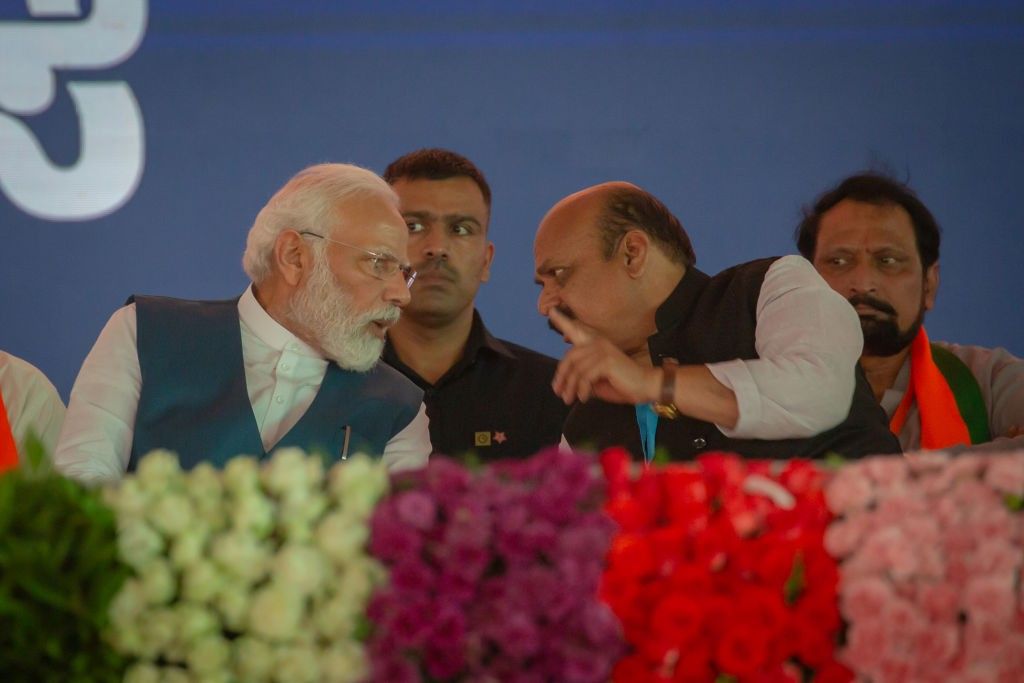- Wednesday, July 02, 2025

By: Shubham Ghosh
The ruling Bharatiya Janata Party (BJP) in the poll-bound southern state of Karnataka decided to remove minority Muslims from Other Backward Classes (OBC) quota last week, triggering a backlash both from leaders of the community and the opposition parties.
The state government, which took the decision in the final cabinet meeting before the assembly elections due on May 10, said that the OBC quota for the minority community was not constitutional since reservation is not allowed based on religion.
However, as an analytical piece in Scroll said, citing experts that the BJP’s reasoning is dubious as Muslims have been given reservation on the basis of their social backwardness and not religion.
In many states, sub-castes in the Muslim community that are “socially and educationally backward” under the definition of the Mandal Commission which was set up in the late 1970s by then Morarji Desai government in Delhi to identify such groups, have been included in OBC lists.
Before the recent move by the BJP government of Karnataka, all the state’s Muslim sub-castes were considered backward and a sub-category called 2B was made for them from the larger OBC quota, the Scroll piece said.
This was done in the mid-1990s (when the Janata Dal Secular was in power in the state) on the recommendation of the Chinnappa Reddy Commission which was set up in 1986 to assess the state’s reservation categories. From the 32 per cent reservation quota for OBCs, four per cent was granted to sub-category 2B or Muslims. Sub-categories 2C and 2D, which represented Karnataka’s dominant Hindu castes Vokkaliags and Lingayats enjoyed four per cent and five per cent.
In the latest arrangement, there exists no 2B category for the Muslims with their share transferred to the two Hindu dominant groups. The minority community is now eligible only for reservations in the Economically Weaker Sections category, which includes the Hindu upper castes, the Scroll analysis said.
While opposition Indian National Congress and Janata Dal Secular slammed the decision taken by the BJP, Amit Shah, India’s home minister and the second-most powerful man in the saffron party after prime minister Narendra Modi, backed the state’s Basavaraj Bommai government’s decision saying quota for Muslims was not valid since the country’s Constitution doesn’t allow reservation based on religion. He also said that such a reservation was introduced to appease the minority sentiments and the BJP ended the practice.
However, many experts differed with the BJP’s stance. Scroll spoke to Muzaffar Assadi, a professor of political science at Karnataka’s University of Mysore, who said the decision to cancel the reservation was not right since the quota for Muslims was not something based on religion but their socio-educational backwardness.
Alok Prasanna, a senior resident fellow at bengaluru-based think tank Vidhi Centre for Legal Policy, told Scroll, “There is no basis to say Muslims were given reservation on the basis of religion. It is partly true that reservation cannot be given only on the basis of religion. But the Constitution allows reservation to be granted based on a community’s social backwardness. So, the argument [that Muslims were given religion-based reservation] is complete rubbish.”
CS Dwarkanath, a former chairman of Karnataka’s backward classes commission, spoke about the state high court’s 1979 observation that Muslims’ religious minority tag was no ground to exclude them from the list of backward classes.
The experts also said that the BJP’s aim was to secure the Vokkaliga and Lingayat votes by sidelining the Muslims as the two dominant Hindu groups play a big role in the state’s electoral politics. According to Assadi, the BJP is facing uncertainty after the removal of Lingayat strongman BS Yediyurappa from the post of the chief minister.
The veteran has also announced that he would not contest polls again but work for the party’s winning chances.
A Narayana, a political analyst who teaches at Azim Premji University in Bengaluru, told Scroll that the BJP was trying to hit two birds with one stone.
“The BJP wants to send a message to the voters. Its thinking seems to be that hardline Hindu voters will consolidate behind it. Muslims would have anyway not voted for the BJP. So, there was nothing to lose by scrapping their quota,” he was quoted as saying by the publication.